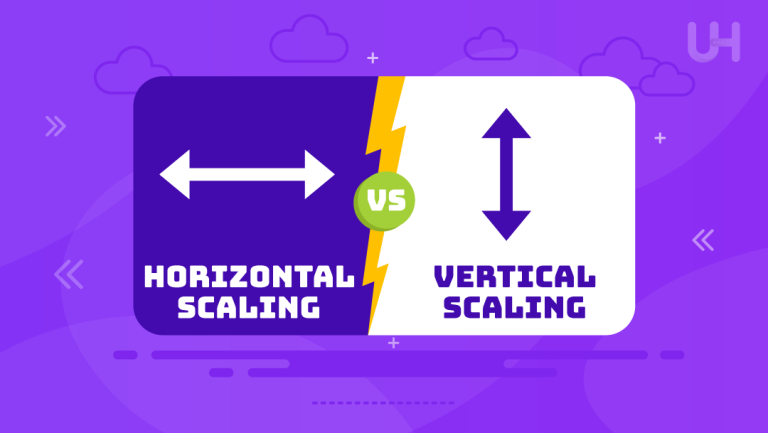With the increase in interconnections among businesses and people made by digital technologies, the discussion circle ardently revolves around data privacy and security. A major regulatory development gaining momentum worldwide is data localization, the practice of storing and processing data within a specific geographic location, often the country where it originated. In 2025, data localization will be much more critical for those businesses that require hosting services and data storage since data security will be in high demand.
In this article, we will return to the basics of data localization, showing how it has affected hosting solutions and what exactly the GDPR and other data localization legislation require.
What is Data Localization?
Data localization refers to a set of legal or regulatory requirements forcing companies to store and process data collected about a nation’s residents within the nation’s borders. Governments support data localization in their effort to guarantee national security, data protection, and digital sovereignty. Keeping data within national borders is an attempt to keep sensitive information regarding a country’s citizens safe, regulate data flows, and ensure greater control over the accessing and processing of data.
Data localization requirements add an extra burden of complexity to hosting companies’ infrastructure. They must establish localized data centers, restructure their data transfer mechanisms, or contract with local storage VPS providers. Adherence to data localization laws ensures that companies remain within the law while continuing to build customer confidence and ensure data security.
GDPR Data Localization Requirements
The European Union’s GDPR set the first global benchmark for data protection in 2018. While the GDPR does not directly require data localization, it has set strict requirements to transfer personal data outside the EEA. For the international transfer of data that has to be under GDPR, each company must satisfy one of three basic requirements:
An Adequacy Decision by the European Commission
An adequacy decision means a finding by the European Commission that a third country or an organization within that country provides adequate data protection with respect to the standards set out in the GDPR. Where a country holds such a finding, transfers can take place without the need for additional safeguards. For example, Japan, Switzerland, and Canada have adequacy status-a businesses can transfer data freely to those destinations without violating the GDPR.
Adequacy decisions simplify data transfers and make compliance quite straightforward for hosting providers. However, adequacy status is hard to attain, and only a few countries meet these strict standards set by the EU. This implies that most hosting providers operate in countries that are not adequate. Hence, they face compliance challenges and have to look into other mechanisms that would enable them to transfer data legally.
Appropriate Safeguards by the Data Controller or Processor
Where there is no adequate decision, a company can rely on appropriate safeguards to ensure data protection during transfers. These safeguards normally come in SCCs or BCRs detailing the protections of such data. Standard Contractual Clauses are pre-approved by the European Commission and used as a contract, ensuring that data, once transferred, is secured and meets the GDPR standards, even in countries lacking adequacy status.
Meanwhile, Binding Corporate Rules are for intra-group transfers. This will legally bind the framework governing data processing and transfers for several jurisdictions involving the same corporate group. Again, these options are crucial for hosting providers operating worldwide since they would allow cross-border data transfer without intrusion into the GDPR.
Derogations
Where an adequacy decision is not possible, nor are the appropriate safeguards possible, derogations offer an alternative for data transfers under specific conditions. Derogations under GDPR include very few exceptions that allow transferring personal data without extra safeguarding in case of meeting certain conditions, such as the individual’s explicit consent or the necessity for the execution of the contract. Derogations are thus restrictive for exceptional situations only and, therefore, cannot rely on to constitute a valid solution for regular data transfers in hosting situations.
Ensure Compliance & Security With Premium Hosting!
Curious about data localization for your business? With UltaHost, you can host your data securely and in compliance with global data localization regulations. We offer regional data storage options to meet your specific localization needs!
How Does Data Localization Work?
Data localization basically deals with the sensitive management of data storage, transfer, and processing to keep pace with changing legal and regulatory requirements. Especially hosting providers have to address the following core areas in their regard skillfully:
On-premises Storage
On-premise data storage involves local files, usually on hardware within a particular jurisdiction. This approach is common for entities with very high levels of data security and data privacy, including financial institutions or governmental departments, who often want the data kept within their own facilities. On-premises storage provides full control over the data, allows companies to apply strict security protocols in line with their policies immediately, and also often plays a role in data localization requirements.
On the other hand, offering on-premise storage is quite challenging for hosting providers because it demands enormous infrastructure investments and expensive upkeep. Still, it offers a feasible solution for companies with sensitive data needing to stay within a particular jurisdiction.
Cloud Storage
The cloud offers a flexible solution for data localization by enabling data to store on several servers across different geographic locations. Several cloud service providers offer location-based data storage, where clients can opt for servers in a particular country or region to meet localization laws’ requirements. For example, large-scale operators such as AWS, Google Cloud, and Microsoft Azure have numerous data centers in other countries, allowing corporations to store information within their borders to comply with regulations.
This is because cloud storage services allow for easier data management and scalability. However, organizations that want to achieve data localization must ensure that their Cloud service provider maintains the necessary standards of protection and ensures local data storage through contractual arrangements.
Data Transfer
Data transfer becomes an important feature of data localization since most regulations actually require data to move across borders. Hosting providers have to ensure data remains within prescribed geographic locations, which is a rather complicated task when the company operates in several regions. This can be the case when the user’s data comes from the EU: it is obligatory that such data be stored, processed, and transferred in compliance with GDPR requirements.
Cross-border data transfer mechanisms, such as SCCs or BCRs, enable compliant data flows by recognizing localization laws. The dedicated hosting providers will have to implement an efficient mechanism for tracking and monitoring the data to ensure achieving the localization requirements and that no breach occurs upon data transfer.
Data Processing
Data processing involves many activities, such as retrieval, analyses, or changes. Many data localization policies require data processing to take place in the home jurisdiction. Hosting providers must ensure that data processing complies with local regulations, especially when handling personal or sensitive information.
Data processing must, therefore, conform to infrastructure capable of responding to localized data requests without compromising high standards for data protection. Hosting providers will prevent potential cases of legal implication by ensuring that processing is within the stipulated regulatory requirements to instill confidence among clients requiring data privacy.
Data Localization Laws

These laws greatly vary from country to country since each region has imposed different requirements in an effort to address assorted privacy and security concerns. Consequently, some of the most influential data localization laws shaping the hosting landscape today include:
- European Union: The EU’s GDPR prescribes rigid data protection and transfer standards and adequate safeguards for data transferred outside the EU. Besides, the member states are considering independent Data Localization Policies for stringent control at the local level.
- United States: The U.S. does not have general federal legislation on this issue of data localization, though it also has some sort of state legislation; California, for example, passed the string legislation on data privacy like CCPA, and most importantly, sectoral legislation, such as health care information, also impose restrictions similar to localization.
- China: Data Localization-DFI, under the China Cybersecurity Law and the enacted Data Security Law, demands that the accumulated data, particularly those considered important or personal, be kept locally in China. Transfers outside China require permission from the government; the law has been actually focused on national data sovereignty.
- India: A proposed Personal Data Protection Bill advocates for strict data localization requirements for certain data categories; hence, personal data and critical information should remain within national borders.
Indeed, these laws mark the growing trend in data localization worldwide. This information will be important to hosting providers in delivering compliant services to a global market. Non-compliance with such laws can attract legal penalties that further undermine consumer trust and, hence, the importance of Data Localization in the modern-day data economy.
Conclusion
By 2025, data localization is expected to be a trend in hosting. Consequently, the organizations will need to feel their way in a more intensive regulatory environment to ensure compliance and security of their data. From the GDPR to the Cybersecurity Law of China to the emerging regulations worldwide, hosting providers must be equipped with sturdy localization strategies that appropriately meet legal and operational needs. By prioritizing data storage in-country and secure processing, organizations will instill consumer trust, protect data, and set up their business for long-term success in a digitally governed global economy.
For businesses prioritizing data localization and security, a reliable dedicated storage server from UltaHost ensures your data is stored and processed within the right jurisdictions. We provide robust, compliant storage solutions that keep your data safe and accessible.
FAQ
What is data localization?
Data localization mandates that data collected within a country be stored and processed within its borders to enhance privacy and security.
Does GDPR require data localization?
GDPR doesn’t mandate localization directly but imposes strict conditions on transferring EU data internationally, often resulting in localization practices.
Why is data localization important for hosting providers?
Data localization helps hosting providers comply with global regulations, ensuring data security, customer trust, and legal compliance.
What are the benefits of on-premises storage for localization?
On-premises storage offers direct control over data within a country, enhancing compliance and security, particularly for sensitive information.
How do cloud providers enable data localization?
Many cloud providers offer region-specific storage options, allowing data to remain within certain borders to meet localization requirements.
What is an adequacy decision under GDPR?
It’s an EU certification stating that a non-EU country has data protection standards comparable to GDPR, simplifying cross-border data transfers.
What’s the impact of data localization laws worldwide?
Global localization laws require hosting providers to adapt data storage and processing practices, emphasizing privacy and regulatory compliance across markets.














